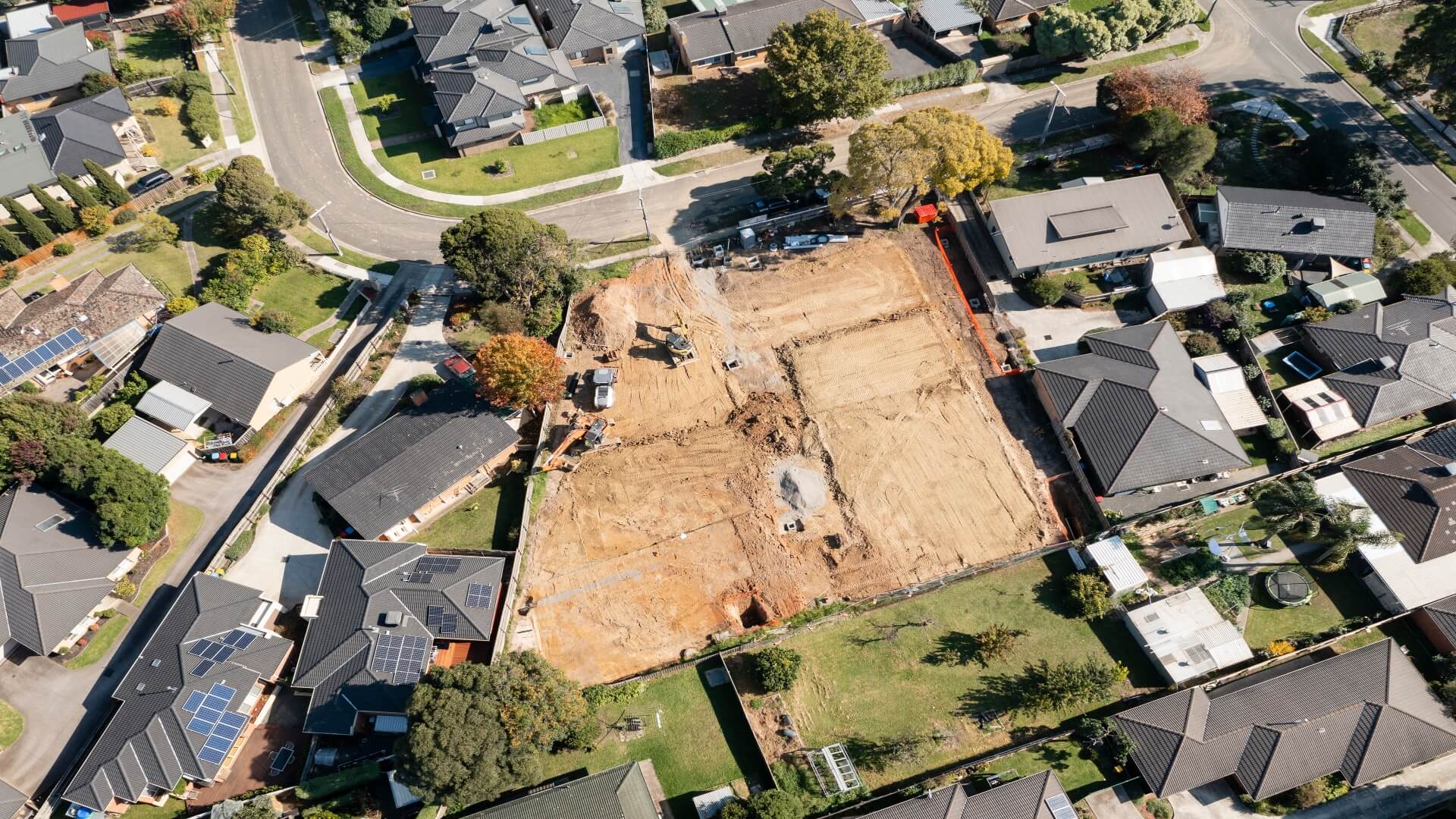Whether you’re looking to expand your property portfolio or purchase land for the first time, this comprehensive guide will provide a clear step-by-step overview of how to buy land in the UK, how much it costs and how it can be financed.
How to find land to buy
The first step to starting your search is by looking in the correct location. Several channels can be used when looking to purchase land. You can typically find land for sale advertised in a number of ways, including online, through land auctions, in local newspapers and magazines, or through estate agents.
Stephen Clark from Finbri bridging finance comments, “There are many routes for sourcing land but in my experience, the most fruitful options tend to be direct contact with the owner or through building deeper relationships with local estate agents. You’re able to obtain the ownership details of a plot of land from the Land Registry or many online land search portals. A simple enquiry letter to the owner could be a good first step of opening up communication.”
Online research: The easiest way to find land for sale in the UK is via an online search. Numerous websites cater to this market, such as Rightmove, OnTheMarket, Zoopla, and Plotfinder. When searching for land to purchase, these sites can allow you to look in a specific area or search by postcode. However, if there is some flexibility in the desired location, it may be worth doing a generic search to determine the average prices and how much the location affects the price.
Estate agents: Another way to find land available for purchase is via an estate agent. This may be considered a more traditional method but can also provide in-depth knowledge of the property market; estate agents will have local knowledge of the area and will usually have a number of properties, including land, readily available to purchase. When using an estate agent, it is essential to get multiple quotes to compare the prices, as they may try to charge a higher commission on the property.
Land auction: Auctions can be an effective way to secure land at a lower market value, often because the land for sale is in foreclosure, or it is government-owned, and they’re selling it to cover tax repayments. However, it is essential to remember that the buyer’s premium (the fee charged by the auctioneer) and survey costs will need to be factored into any offer made. Auctions are typically a quicker process than purchasing through an estate agent, which would be an acceptable alternative for those looking to buy a property quickly.
Newspapers and local magazines: A more traditional method of finding land for sale in the UK is by looking through local newspapers and magazines. However, this can be a more time-consuming method, but it may be worth considering if you have a specific location or type of land in mind.
Combining all these channels can provide a greater understanding of the market to find the best value for money.
What to look for when buying land
Be certain of your purpose: Defining the purpose, and understanding the possibilities, of your site is the first step in ensuring your purchase fits your requirements. Aim to be super clear with your intent. If your intent is to develop the land for profit then price will also factor into your decision-making and whether the land has planning already granted, and to what extent will affect the price greatly. For example, if you are planning on building a house, you will need to make sure there is planning permission for one or more residential dwellings appropriate to the intended development.
Brownfield or Greenfield: There are several attributes to consider when purchasing land – there are two main types of land offered, Greenfield and Brownfield. Greenfield sites are undeveloped land; Brownfield sites typically have a structure already built or elements of services laid on where the site once had a property. Usually, it is easier to get planning permission on Brownfield land as there are benefits to the local communities for repurposing such a site. However, Brownfield sites may well require various remediation to the site due to contamination from its previous use.
Location: Location plays a significant role in determining the land price. Desirable locations with good amenities, such as schools or transport links are highly sought after and this influences the value of land intended for development.
Size: Depending on the land’s purpose, size would be a significant attribute when buying land. Whether this be any potential property development or for agricultural purposes, the size of the land is an essential factor. Therefore, you need to consider if the land size is appropriate for your chosen purpose and large enough for any potential property development.
Type: The type of land purchased will be dependent on current use, known as its class, whether this is for agricultural use, commercial, residential or industrial. The class type will be a deciding factor when buying land. Natural hazards should be included in this decision process; for example, property developers should not deem a floodplain appropriate for housing development. Whilst the existing class can be changed to another, there are strict planning requirements for this, so advice should be sought when the land being purchased is not currently in the class required.
Planning permission: In most local authorities, planning applications are decided within 8 weeks, however large or complex applications might take up to 13 weeks. This timeline significantly extends if the decision is against you and you wish to appeal. In some instances land can be sold with permission already granted with the local authority which is clearly of benefit to a developer, however it’s essential to identify if any planning restrictions or covenants are also associated with the land.
Clear boundaries: Ensure that the boundaries of the land are clear and there are no disputes with neighbouring properties; this could ultimately lead to further ongoing issues and expenses.
These are the main aspects a buyer should prioritise when looking to purchase land. Awareness of all the potential implications and restrictions of owning land is essential. In addition, it is necessary to conduct adequate research to find the most suitable option. Buying land offers several development opportunities; however, it is essential to consider all attributes before finalising any purchase.
How much does this cost?
The price of land will typically depend on the size, location, and intended purpose. Depending on the region, the average price per acre typically ranges upwards of £7,000. However, this is a general estimation as numerous external factors could impact the price, such as the current market, any potential planning permission needed, and location.
Site Surveyor: A site surveyor is a professional that produces a report detailing the condition of the land being purchased. This report will highlight any potential risks or problems with the land. It is crucial to utilise a site surveyor as they can offer valuable insights that may not have been considered. Using a site surveyor will typically be around £300 – £1,000 per day, depending on the surveyor. However, it must also be noted that contaminated land surveys tend to cost more as they require further investigation. Property developers might also be interested to know that if they’re seeking finance for the development of the land then they will be required by the lender to pay for a valuation survey of the lender’s choosing in addition to any previous one they have had completed, regardless of how recent it was. In some cases it might save costs to seek advice from a lender at the earliest opportunity.
Legal fees: It is essential to utilise a solicitor when purchasing land as they can offer guidance and support throughout the process. They will also help to draw up any relevant contracts. Utilising a solicitor, although incurring additional fees, utilising a solicitor will assist in guiding you through the process and drawing up any applicable agreements. The average cost of using a solicitor varies significantly, but typically it is cheaper to use a fixed rate service; however, this rate will also depend on the purchase’s value and complexity.
Stamp Duty Land Tax (SDLT): SDLT will also be applicable when purchasing land in the UK. This tax is payable to HMRC and is based on the value of the property transaction. For example, up to £250,000 has a 0% tax rate, with SDLT rates rising to 12% depending on the value. These rates are for non-residential properties and are subject to change, so they must be checked at the time of the purchase.
Land purchasing can be costly and time-consuming, with many associated fees and taxes. Therefore, it is essential to be aware of all potential costs before making any purchase. Purchasing land offers many opportunities; however, it is necessary to consider all fees and restrictions before finalising any purchase.
Once you have found the plot of land that suits your requirements, you will need to find a method of financing this purchase. The process of paying for land is similar to buying a house. First, you will need to instruct a solicitor who will carry out all the legal checks and draw up the contract of sale. Once both parties sign the contract, a deposit must be paid by the purchaser to the seller, typically around 10% of the purchase price when the contracts exchange. The final payment will be made once the contract is completed. However, numerous methods can be used to fund this process, this includes:
Land bridging finance: Land bridging finance is a short-term loan used to purchase land, develop it, and then sell it for a profit. This type of finance is typically only available to experienced developers as these projects often have a high-risk profile. The typical loan amount offered is around 50% to 70% LTV, depending on the planning, security, and lender with terms ranging from 1 to 24 months. This is one of the most popular forms of financing, as property developers can borrow large amounts; typically, high-street banks tend to avoid it due to the high-risk level. Therefore, alternative lenders may be more appropriate in certain circumstances. BridgingLoan.Org.Uk is a directory that lists all major UK alternative brokers and lenders.
Development finance: Development finance is a loan used to fund the costs associated with developing land. This could include the cost of planning permission, surveys, and the building process. Development finance is typically only available to experienced developers due to the level of risk for the lender. The typical loan amount sought is between 65% to 100% loan to gross development value (LTGDV).
Personal savings: Another method that can be used to fund the purchase of land is using personal savings, this can be used for any purpose and no interest needs to be repaid. This is often the most common method as it doesn’t incur additional costs.
Final thoughts
Buying land for property development has a significant time resource and financial cost associated with it. The potential for high returns are equally significant and it’s for this reason why property values have increased on a yearly basis for the last decade, with greenfield site values having increased by 7.1%, and urban site values by 5.7% in the last year. Whether any specific plot of land is a good investment relies on multiple factors, some of which may not be truly understood until the development is completed and sold. If in doubt, always seek professional advice before making any significant decisions.



























